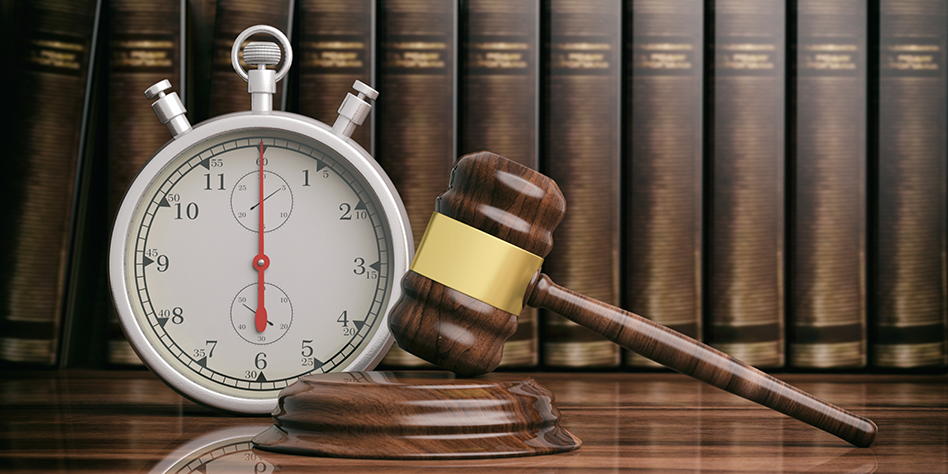BY MICHAEL ‘LEKAN ODUNLAMI
One of the major principles of Nigerian civil law that controls how long a claimant has to file a lawsuit is the statute of limitations. This principle is especially important in personal injury cases because it establishes whether a victim of carelessness or wrongdoing can still seek damages in a court of law. Regardless of the strength or legitimacy of the case, a victim of personal injury forfeits the ability to sue the perpetrator after the statute of limitations has passed. In regard to personal injury claims, this article will try to examine the justification, the relevant time frame, the exclusions, and the ramifications of the limitation period.
The first of the statute of limitations’ two primary functions is to prevent the perpetual threat of litigation and to advance justice, particularly for victims. The statute of limitations promotes fair trials and certainty in the legal system by guaranteeing that claims or court actions be started when the evidence is still new and the witnesses’ recollections are still trustworthy. While each state in the federation has its own limitation laws, the Federal Capital Territory (FCT), Abuja, is subject to Nigerian law, which is governed by the Limitation Act, Cap 522 Laws of the Federation of Nigeria 2004. The exact time frame for filing claims can vary from state to state, despite the fact that these rules have identical fundamentals.
However, Nigeria’s typical statute of limitations for personal injury claims is three years from the day the wrong was done or the cause of action accrued. This implies that the injured party must bring their case in court within three years of the injury-causing event. The claim becomes statute-barred if it is filed after this time, meaning the court will not consider it. A key idea is the accrual of the cause of action, which describes the moment the claimant initially has the right to file a claim, typically at the time of the injury or damage.
Advertisement
This general rule does have several exceptions and nuances, though. The theory of ongoing harm or damage is among the most prominent. Where a wrongdoing persists over time, such as continuous environmental degradation or exposure to a dangerous drug. In some cases, as long as the wrongdoing persists, the statute of limitations may be reset. In this way, defendants are unable to avoid responsibility for long-lasting injury. There is, however, an exception for latent injuries, or injuries that do not show up right away. Nigerian courts have acknowledged that if the claimant could not have reasonably discovered the injury earlier, it may be unfair to calculate the statute of limitations from the date of the negligent act. As a result, the statute of limitations may start on the day the claimant learnt about the harm or should have learnt about the injury and its cause. This method is similar to other common law jurisdictions’ “discovery rule.”
However, failing to file a claim on time cannot be justified by a lack of knowledge of the law or a simple delay. Nigerian courts have ruled repeatedly that time does not stop while one is unaware of their legal rights. The defendant may assert the defence of limitation after the statutory period has passed, in which case the court must reject the claim as statute-barred. The defendant has the burden of demonstrating that the action was started after the allotted amount of time. The limitation defence is absolute if it is successfully asserted; it ends the claimant’s right to sue as well as the court’s ability to hear the case.
Special limitation provisions also apply to some claims made against public officials or government entities. Actions against public officials for actions taken while performing their duties are required by the Public Officers Protection Act to be brought within three months of the cause of action accruing. This brief statute of limitations has frequently been condemned for being unduly onerous and for absolving careless public servants of responsibility. However, Nigerian courts have occasionally loosened their application, particularly in cases where ill faith or an ongoing wrong is an issue.
Advertisement
The statute of limitations for injury claims in Nigeria has broad practical ramifications. It underscores how important it is for claimants to respond quickly. Accident, medical, or occupational hazard victims need to get legal counsel as soon as possible and submit their complaints within the allotted period. Even the strongest claim can become worthless due to delay. The statute of limitations offers defendants security and defence against out-of-date allegations. It enables people, businesses, and government agencies to proceed without the constant worry of being sued for things that happened a long time ago.
To sum up, Nigeria’s statute of limitations is essential for striking a balance between the demands of justice and legal certainty. Although some states extend this to six years, the typical statute of limitations for personal injury claims is three years from the date the cause of action arises. Ignorance of the law is not an acceptable defence, albeit there are exceptions for latent damages and ongoing injuries. The theory protects the integrity of the judicial system by guaranteeing that conflicts are settled in a fair amount of time, despite the fact that it may occasionally seem harsh. Therefore, in order to preserve their right to seek a remedy, injured parties must take prompt action and obtain expert legal advice.
This article is meant for general understanding only and not legal advice. If you believe you’ve suffered any harm or injury due to another person’s fault, and you are concerned about the viability of your case or high cost of hiring a lawyer, you can reach out to an experienced personal injury lawyer who may be willing to offer a free legal advice and handle your case on a “NO WIN, NO FEE” arrangement, which simply means you only pay if you win and get compensation.
Michael ‘Lekan Odunlami, Esq. is a Lagos-based personal injury lawyer at Claybrook Attorneys. He can be contacted via [email protected]
Advertisement
Views expressed by contributors are strictly personal and not of TheCable.





